Being-in-the-World
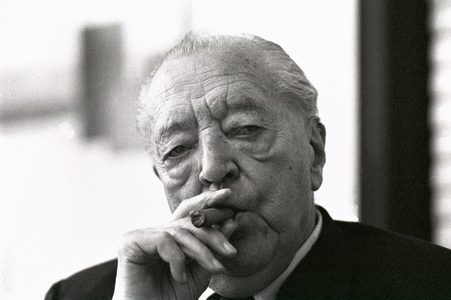
LOL3895591 Ludwig Mies van der Rohe; (add.info.: Ludwig Mies van der Rohe. German architect 27 March 1886 17 August 1969.); © Jeff Lowenthal. All rights reserved 2024.
Medard Boss (1903-1990) was a prominent Swiss psychiatrist and psychoanalyst best known for developing Daseinsanalysis, an approach to psychotherapy that integrated the phenomenological philosophy of Martin Heidegger with the insights of depth psychology. His innovative vision expanded the scope of psychoanalytic thought, grounding it in a holistic understanding of human existence as fundamentally embedded in the world. This article explores Boss’s life, his key ideas, and his enduring impact on the fields of psychology, psychotherapy, and existential philosophy.
Life and Career
Medard Boss was born in St. Gallen, Switzerland in 1903. He studied medicine at the University of Zurich, where he was introduced to the works of Sigmund Freud and Carl Jung. After completing his medical degree, Boss underwent training in psychoanalysis, acquiring a deep familiarity with Freudian theory and technique.
However, Boss grew increasingly dissatisfied with certain aspects of classical psychoanalysis, particularly its emphasis on unconscious drives and instincts as the primary determinants of human behavior. He felt that this view neglected the fundamental role of conscious experience and the individual’s relationship to their world.
In the 1930s, Boss encountered the philosophy of Martin Heidegger, whose groundbreaking work Being and Time had a profound impact on his thinking. Heidegger’s phenomenological approach, which emphasized the primacy of human existence (Dasein) as “being-in-the-world,” resonated deeply with Boss’s clinical experiences and his intuitions about the nature of the psyche.
Boss went on to forge a close intellectual partnership with Heidegger, engaging in extensive dialogues and collaborations over the following decades. With Heidegger’s support, Boss developed Daseinsanalysis as a therapeutic approach grounded in phenomenological principles. He established a psychiatric clinic in Zollikon, Switzerland where he refined his method through work with patients.
Over the course of his career, Boss published numerous books and articles expounding his ideas, including Psychoanalysis and Daseinsanalysis (1963), Existential Foundations of Medicine and Psychology (1979), and The Meaning and Content of Sexual Perversions (1949). He also organized the renowned Zollikon Seminars, a series of lectures delivered by Heidegger to Boss’s students at the University of Zurich between 1959 and 1969.
Boss’s work played a seminal role in the development of existential and humanistic approaches to psychotherapy. His ideas influenced many prominent figures in these fields, including Rollo May, Irvin Yalom, and Ernesto Spinelli. Today, Boss is recognized as a pioneering thinker who helped to broaden the philosophical foundations of psychotherapy and to deepen our understanding of the human condition.
Key Ideas
At the heart of Boss’s thought is the concept of Dasein, Heidegger’s term for human existence in its most fundamental sense. For Boss, as for Heidegger, Dasein is not a self-contained subject separate from the world, but a being always already immersed in and constituted by its world. We are inextricably embedded in a meaningful context of relationships, projects, and concerns that shape our identity and experience.
This view contrasts with the Cartesian dualism implicit in much of Western thought, which posits a sharp distinction between the mind and the external world. Boss argued that this dualistic outlook, which also informed classical psychoanalysis, led to a distorted and impoverished understanding of the psyche. By treating the individual as an isolated mental apparatus driven by unconscious forces, psychoanalysis neglected the fundamental relatedness of human existence.
Instead, Boss proposed a radically contextualist and non-reductive approach to the psyche. For Daseinsanalysis, psychological phenomena are not merely products of intrapsychic mechanisms but meaningful responses to the individual’s being-in-the-world. Symptoms, dreams, fantasies, and emotional states are all ways of relating to and disclosing the world, shaped by the person’s unique situation and history.
Boss emphasized the need to understand each individual in their full existential context, considering the complex web of relationships, roles, and commitments that constitute their lifeworld. This holistic perspective sees the person not as a collection of parts or functions but as a unitary being engaged in an ongoing process of self-interpretation and meaning-making.
A key theme in Boss’s work is the idea of openness or disclosedness as the fundamental character of Dasein. In contrast to the psychoanalytic focus on unconscious content, Boss stressed the way in which human existence is always already open to and engaged with the world. We are constantly attuned to and affected by our surroundings, responding to the possibilities and limitations they present.
For Boss, psychopathology arises when this basic openness becomes constricted or distorted. Mental illness reflects a narrowing or rigidification of the individual’s relationship to the world, a diminishment of their capacity for flexible and authentic engagement. The task of therapy, then, is not merely to uncover hidden conflicts but to help the person reconnect with their fundamental relatedness and potential for openness.
Boss also challenged the traditional psychoanalytic understanding of sexuality, arguing that it too was shaped by Cartesian dualism. Rather than reducing sexuality to biological drives or unconscious fantasies, he saw it as a primary mode of relating to others and the world. Sexual experience, in its healthy forms, involves a reciprocal openness and attunement between partners, a shared immersion in the sensual and affective dimensions of existence.
Throughout his work, Boss emphasized the need for a more phenomenological approach to psychotherapy, one that stays close to the lived experience of the individual. Rather than imposing preconceived theoretical frameworks, the therapist must strive to bracket their assumptions and attend carefully to the unique meanings and concerns that emerge in each therapeutic encounter.
This attitude of openness and attentive presence lies at the heart of the Daseinsanalytic method. The therapist aims to create a space of trust and mutual exploration in which the client can gradually disclose their world and reconnect with their authentic possibilities. By illuminating the existential themes and relational patterns that shape the individual’s experience, therapy can help them to confront and transform the constrictions that limit their growth.
Ultimately, for Boss, the goal of psychotherapy is not merely the resolution of symptoms but a fundamental shift in the person’s way of being-in-the-world. By coming into a more open, flexible, and authentic relationship with their existence, the individual can reclaim their capacity for creativity, intimacy, and self-realization. Daseinsanalysis thus sees itself not as a technical procedure but as a shared journey of discovery, a deeply human encounter in which both therapist and client are transformed.
Influence and Legacy
Boss’s ideas had a profound impact on the development of existential and humanistic approaches to psychotherapy. His work helped to introduce Heideggerian concepts into the clinical domain, providing a philosophical foundation for a more holistic and contextualist understanding of psychological life. Many of the central themes of existential therapy, such as the emphasis on lived experience, authenticity, and being-in-the-world, can be traced back to Boss’s pioneering efforts.
At the same time, Boss’s critiques of classical psychoanalysis anticipated many of the challenges that would later be posed by postmodern and intersubjective perspectives. His emphasis on the co-constructed nature of therapeutic knowledge and his rejection of reductionist, objectifying approaches to the psyche foreshadowed key developments in contemporary psychodynamic thought.
Boss’s influence can be seen in the work of numerous major figures in humanistic and existential psychology. Rollo May, a leading existential psychologist in the United States, was deeply influenced by his encounters with Boss and helped to disseminate his ideas to an American audience. Irvin Yalom, another prominent existential therapist, has acknowledged Boss’s work as a significant precursor to his own.
In the field of phenomenological psychopathology, Boss’s ideas have been taken up and elaborated by thinkers such as Wolfgang Blankenburg and Ludwig Binswanger. His emphasis on the lived experience of mental illness and his rejection of reductive, objectifying diagnostic frameworks have inspired a generation of clinicians and researchers seeking to develop more nuanced and humane approaches to psychological suffering.
Beyond the clinical realm, Boss’s dialogues with Heidegger and his efforts to apply phenomenological principles to the understanding of human existence have had a lasting impact on continental philosophy and the humanities more broadly. The Zollikon Seminars, in particular, represent a fascinating and fruitful encounter between two of the 20th century’s most important thinkers, shedding light on the complex relationship between philosophy and the human sciences.
Today, Boss’s legacy continues to inspire therapists, scholars, and thinkers around the world who are seeking to develop more integrative, contextually-sensitive approaches to the study of the human mind. His vision of psychotherapy as a deeply human encounter, grounded in a recognition of our fundamental relatedness and potential for growth, remains a vital resource for those working at the intersection of psychology, philosophy, and the quest for meaning.
As the fields of psychotherapy and mental health continue to grapple with the challenges of a rapidly changing world, Boss’s ideas offer a reminder of the enduring importance of attending to the lived experience of the individual in all its complexity and depth. By staying true to the phenomenological imperative and the existential dimensions of human existence, we can develop approaches to healing and growth that honor the full richness and mystery of the psyche.
Medard Boss’s life and work represent a landmark contribution to the fields of psychology, psychotherapy, and existential philosophy. Through his creative synthesis of Heideggerian phenomenology and depth psychology, Boss helped to inaugurate a new understanding of the human mind as fundamentally embedded in and shaped by its world. His vision of Daseinsanalysis as a holistic, non-reductive approach to psychotherapy continues to inspire clinicians and thinkers seeking to develop more humanistic and contextually-sensitive forms of practice.
Boss’s enduring legacy lies in his commitment to staying true to the lived experience of the individual and his recognition of the profound relatedness of human existence. By challenging the dualistic and reductionistic assumptions of classical psychoanalysis, he opened up new possibilities for understanding psychological life in all its complexity and depth. His emphasis on authenticity, openness, and being-in-the-world anticipated key themes in contemporary existential and humanistic thought.
As we navigate the challenges of an increasingly interconnected and rapidly changing world, Boss’s ideas remain a vital resource for those seeking to develop more integrative and person-centered approaches to mental health and well-being. His vision of psychotherapy as a deeply human encounter, grounded in a spirit of openness and mutual discovery, offers a powerful alternative to the technocratic and objectifying tendencies of much contemporary practice.
At the same time, Boss’s work reminds us of the ongoing relevance of philosophical reflection for the understanding of psychological life. By engaging in sustained dialogue with Heidegger and other thinkers, Boss demonstrated the fruitfulness of cross-disciplinary collaboration and the importance of grounding clinical practice in a robust philosophical framework.
As we continue to grapple with the mysteries of the human mind and the challenges of promoting healing and growth, Boss’s legacy invites us to remain open to the richness and complexity of human experience in all its dimensions. By staying true to the phenomenological imperative and the existential depths of the psyche, we can develop approaches to psychotherapy and mental health that honor the full dignity and potential of every individual. In this way, Boss’s work continues to inspire and challenge us, calling us to a more authentic and compassionate engagement with ourselves and our world.
















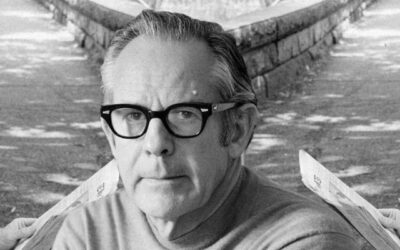
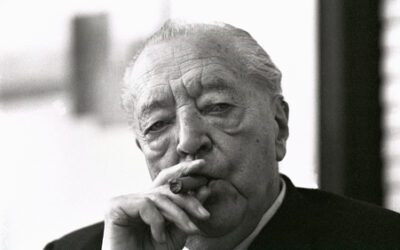
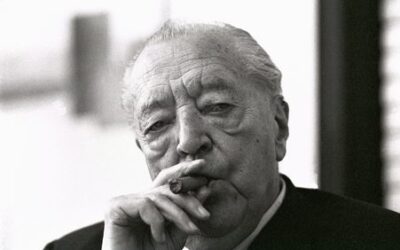
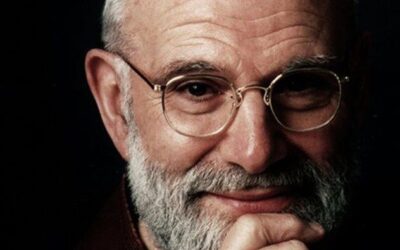


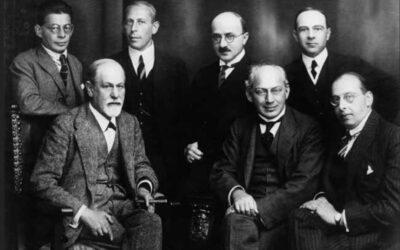
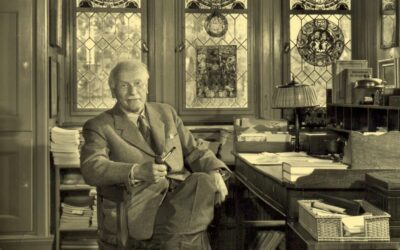

0 Comments